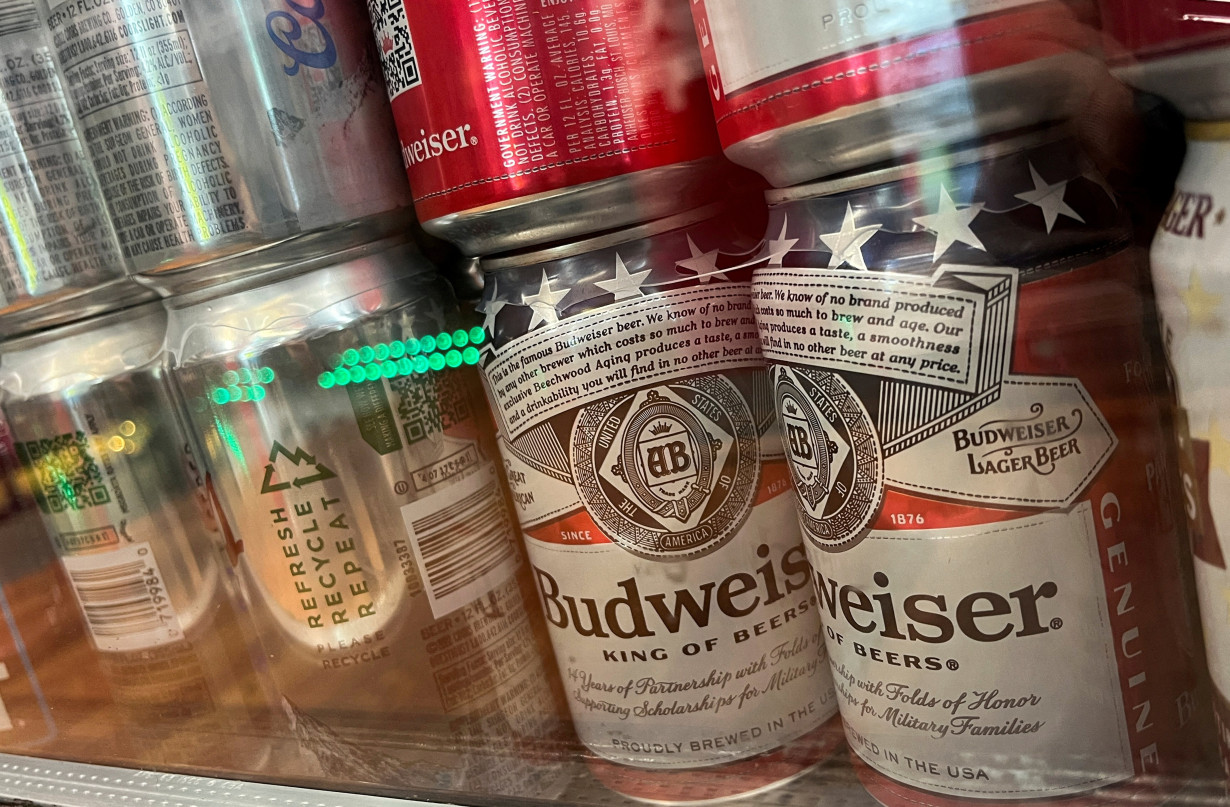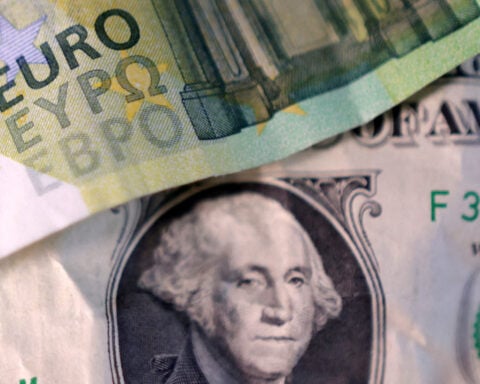By Heather Schlitz
CHICAGO (Reuters) - Overdue loans and mounting interest payments often weigh on Montana barley grower Mitch Konen as he bales hay and loads trailers at his remote farm overlooking the snow-capped Rocky Mountains.
As spring sunshine warms the fields, Konen, 65, and other barley farmers worry tariffs will take away crucial export markets and increase the cost to grow the grains, even as sinking U.S. beer consumption has slashed demand for barley.
"Down here on the farm we’re already stretched pretty thin financially," said Konen, who is also vice president of the National Barley Growers Association. "It makes us wonder whether or not we can even stay in business."
Roughly half of Konen's barley is destined for Mexico, where it will be turned into beer. Some will be shipped back to the U.S. in bottles of Modelo, Corona and Pacifico.
Mexico is the third largest importer of U.S. barley and the biggest importer of U.S. malt, made from germinating kernels of barley and a key ingredient in beer. If Mexico issues tariffs in retaliation or switches to buying barley from other trading partners, experts say it could deal another economic blow to American farmers as U.S. consumers increasingly ditch beer.
Canada, the largest importer of U.S. malt barley, issued tariffs against U.S. barley and other agricultural goods that went into effect on March 4. Frayne Olson, crop economist at North Dakota State University, said farmers are worried that tariffs could decimate U.S. barley exports to Canada.
U.S. President Donald Trump has said his back-and-forth tariffs against major trading partners are intended to curb the flow of illegal drugs and migrants into the U.S., and has downplayed the market impacts for U.S. companies and consumers.
"The people who pay for tariffs are the farmers," said barley farmer Steve Sheffels, vice president of the Montana Grain Growers Association. "We grow way more barley than we can possibly consume, so if those markets go away, then farmers are going to be competing for a much more limited number of buyers."
Costs for fertilizer, which is mostly sourced from Canada, will rise with tariffs. Prices for imported crop chemicals from China have already risen because of tariffs that took effect on February 4.
"There's a sinking feeling and a feeling of dread that things are bad, and things are going to stay bad for a while," Sheffels said. "We are scared almost to death about tariffs."
A SLOW DECLINE
Beer consumption in the U.S. has been sliding and in 2024 it hit its lowest level in over 40 years as more Americans chose other alcoholic beverages, said Bart Watson, chief economist at the Brewers Association. Recently, hard seltzer drinks and canned cocktails have posed particularly bruising competition to beer.
Others are giving up alcohol altogether. Gen Z-ers and millennials are drinking less than most previous generations, according to a 2024 Gallup poll. In January, former U.S. Surgeon General Vivek Murthy called for cancer warnings on alcoholic drinks. Multiple high-profile studies have stated no amount of alcohol is safe to drink.
Watson believes major beer companies such as Anheuser-Busch, maker of Bud Light and Michelob Ultra, may keep prices steady to preserve market share and maintain sales volume. Craft breweries may be less able to absorb higher costs and are likely to raise prices, he said.
The 25% tariffs the White House has slapped on metals will likely hike the costs brewers pay for kegs and cans, which are often made from steel and aluminum imported from Canada.
The price of a bottle of Corona or Modelo, both produced in Mexico, may be more likely to spike if U.S. malt is subject to tariffs by Mexico as it heads south and the finished beer is slapped with tariffs again as it is shipped north.
"Breweries are going to have to choose to pass this along or choose to eat it," Watson said. "It will have an impact."
(Reporting by Heather Schlitz. Editing by Emily Schmall and David Gregorio)

 Trump has begun another trade war. Here's a timeline of how we got here
Trump has begun another trade war. Here's a timeline of how we got here
 Canada's leader laments lost friendship with US in town that sheltered stranded Americans after 9/11
Canada's leader laments lost friendship with US in town that sheltered stranded Americans after 9/11
 Chinese EV giant BYD's fourth-quarter profit leaps 73%
Chinese EV giant BYD's fourth-quarter profit leaps 73%
 You're an American in another land? Prepare to talk about the why and how of Trump 2.0
You're an American in another land? Prepare to talk about the why and how of Trump 2.0
 Chalk talk: Star power, top teams and No. 5 seeds headline the women's March Madness Sweet 16
Chalk talk: Star power, top teams and No. 5 seeds headline the women's March Madness Sweet 16
 Purdue returns to Sweet 16 with 76-62 win over McNeese in March Madness
Purdue returns to Sweet 16 with 76-62 win over McNeese in March Madness








